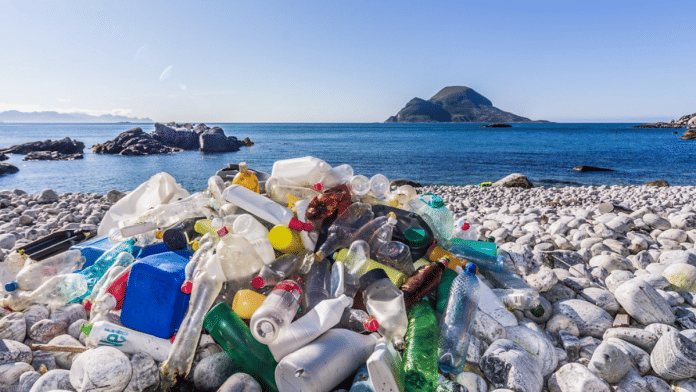New Delhi: More than 170 trillion pieces of plastic choke the world’s oceans, a study has revealed.
According to the US-based non-profit 5 Gyres Institute, this amounts to approximately two million tonnes of plastic.
The institute’s study, published on Wednesday in the journal Plos One, looks into previously published and recent data on floating ocean plastics from 1979 to 2019 to estimate the average count and mass of small plastics in the surface layer of the ocean. The aim of the study was to assess whether implemented preventative strategies by institutions around the world are helping the cause.
From the above time series, the study observed that there was no clear detectable trend until 1990. The period from 1990 to 2005 was a fluctuating but stagnant trend, and after 2005 there was a rapid increase till the present day. The study concluded that this acceleration of plastic densities in the oceans — including beaches — demands “urgent international policy interventions”.
To obtain an estimate for the entire ocean, over 12,000 new samples were collected using very fine mesh nets on the surface of ocean waters around the world. The researchers estimated that 82 to 358 trillion plastic particles were afloat in 2019.
They further analysed that the globalisation of raw plastic materials accelerated at the turn of the century which then led to rapid increase in import, export, and domestic production of plastic products and packaging. As well as increase in the amount of plastic waste generated.
At the same time, plastic recycling, even in countries with highly developed waste-management infrastructure, has historically been low.
The researchers, while citing other works to back their own findings, also observed that owing to lack of recycling, there has been a flood of plastic products primarily due to the international trade of low-value waste plastics that remain as “mismanaged waste” in the receiving country.
Without substantial policy changes, these scientists believe the rate at which plastics enter aquatic environments will increase approximately 2.6-fold from 2016 to 2040.
They contend that the existing international policies on plastic are “fragmented” and favour “business-oriented solutions”.
Where they lack is in specificity and also fail to include measurable targets, they wrote.
Additionally, they also argue that international policy interventions after 2005 exclude robust monitoring frameworks, are non-binding, voluntary and are not able to “stem the tide”.
Dr Marcus Eriksen, Co-Founder of the 5 Gyres Institute said the only way to curb this exponential increase in plastic waste is to usher in an age of corporate responsibility “for the entire life of things they make.”
“Cleanup is futile if we continue to produce plastic at the current rate, and we have heard about recycling for too long while the plastic industry simultaneously rejects any commitments to buy recycled material or design for recyclability. It’s time to address the plastic problem at the source,” The Independent reported.
Also read: This Gujarat cafe loves plastic waste. For all the right reasons






